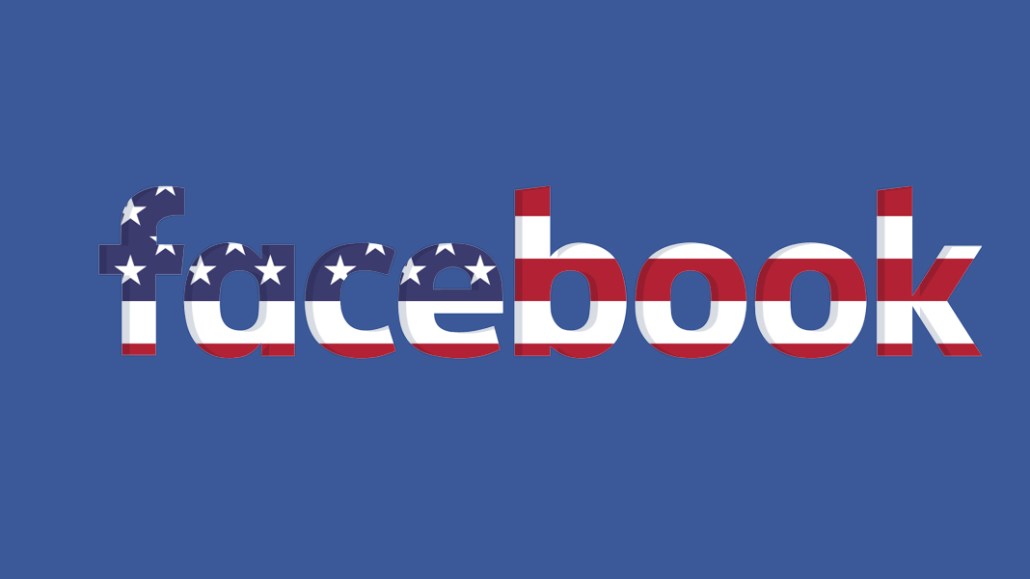Seven news organizations protest Facebook’s issue ads policy

A group of seven media associations June 11 sent Facebook a letter protesting its issue ads policy that would lump news articles in with political and advocacy ads as part of an effort to be more transparent about political advertising on the social network.
The policy would affect publishers that pay Facebook to boost exposure of their news articles. It has publishers concerned that putting their boosted content in the same archive as political ads will make it appear biased. New York Media and the Financial Times said they would suspend their paid promotion on Facebook due to their concerns about the policy, even though it would mean giving up potential audience gains.
The letter’s message builds on a statement in May by the News Media Alliance, which represents some 2,000 newspaper companies including The New York Times, News Corp and McClatchy, for Facebook to exempt credible news organizations from the requirement. The hope is that the heft of the combined associations will make it harder for Facebook to ignore them.
The new letter is signed by the News Media Alliance as well as the heads of the American Society of News Editors, European Publishers Council, Digital Content Next, MPA – The Association of Magazine Media, Society of Professional Journalists and WAN-IFRA. It says Facebook’s policy further blurs the line between credible journalism and propaganda and asks the company to exclude publishers from being subject to the political advertising-treatment policy. The letter further gives recommendations on how Facebook could identify news outlets to exempt from the policy, using criteria including the presence of a dedicated, professional news staff; commercial support through means like subscriptions or advertising; and membership in an industry organization.
“Our seven associations, representing over 20,000 news publications in over 120 countries, strongly encourage you to revise your political advertising policy to immediately exempt news publications and work with industry towards a solution,” David Chavern, News Media Alliance president and CEO, wrote in his cover email to Facebook top brass.
The signers represent an alliance of international news organizations and the broader view that Facebook has once again failed to understand and listen to the news industry.
“We’re concerned, as news leaders across America, about the impact that Facebook’s policy could do to the value of independent journalism,” said Alfredo Carbajal, president of ASNE and managing editor of Al Día at The Dallas Morning News. “If our news content is to be treated and classified as part of political ads, then the public at large will be largely misinformed.”
“These are confusing and sometimes dangerous solutions, as Facebook refuses to listen to the broader news industry and member associations who work tirelessly to protect the public and the free and independent press,” said Jason Kint, head of Digital Content Next. “It’s the quintessential big tech echo chamber and the antithesis of the transparency they have promised us.”
“In spirit, what Facebook is trying to accomplish is both reasonable and important — to help their users understand the sources of political advertising vying for their attention,” said Maribel Perez Wadsworth, president of the USA Today Network and publisher of USA Today. “The problem rests in the execution. Facebook’s approach fails to draw a critical distinction between journalism and political advertising. We object strongly to this approach as it would misrepresent and undercut our journalism, and we are supportive of the NMA’s and DCN’s efforts on behalf of the industry to help Facebook identify a solution.”
Facebook is under intense pressure to tighten up its election policy after Russian actors used the platform to run divisive ads during the 2016 U.S. presidential election. Facebook’s head of global news partnerships, Campbell Brown, responded earlier to the alliance that Facebook recognizes that news coverage of elections and other important issues are distinct from advocacy or electoral ads. She said Facebook would work with publishers individually on the issue, which some publisher groups say smacks of a divide-and-conquer approach.
Facebook now says it aims to have the policy updated this summer. In an interview with Axios June 11, Brown said Facebook would roll out separate treatment for archives in the next couple weeks, one for news publishers and one for political ads. Facebook also has removed the words “political ad” from its ad labeling, so now it’s all labeled “paid for by,” but the archive is still called “ads with political content,” which is problematic to publishers.
Brown, who has taken a more forceful tone with publishers lately, also said those who are concerned about the policy in the meantime can just pause their spending there. That won’t likely satisfy the news organizations, which asked to be immediately exempt from the policy. Just walking away also isn’t a realistic option for many publishers, given Facebook’s sheer size and importance as an audience-building vehicle.
“Transparency leads to greater accountability, and it’s something our news partners have encouraged, which is why we’re moving in this direction for all advertising that involves political content,” Brown said in a statement via Facebook public relations. “We’ll continue to authorize ad content from news organizations that includes political mentions, but we recognize that reporting on these topics is different than advocacy. We’re working to treat advertised news content differently in the archive, which addresses our news partners’ fundamental concern. An exemption or whitelist would directly negate the new levels of transparency we’re trying to achieve.”
The ads policy response is just one of the sticking points that publishers have with Facebook. Facebook said it would favor news from high-quality publishers, but publishers have questioned its methods for defining such quality. Publishers have long distributed the content on the platform, but haven’t made any meaningful revenue from it. Facebook has been paying news publishers to produce shows for its long-form video section, Watch, but there’s no guarantee the money will continue once the subsidies end.
The letter is also the latest example of how publishers or their organizations have banded together to try to curtail the power of the tech giants. Four of the seven organizations together protested Google’s plan to comply with the General Data Protection Regulation that protects EU citizens’ privacy, and they also sat out meetings that Google called to discuss its position with publishers.
More in Media

Podcast companies turn to live events to capture growing advertiser spend
The surge in the number of live podcast events in 2025 reflects a broader shift: advertisers are betting bigger on podcasts — not just as an audio channel but as a full-fledged creator economy play.

Media Briefing: ‘Cloudflare is locking the door’: Publishers celebrate victory against AI bot crawlers
After years of miserably watching their content get ransacked for free by millions of unidentified AI bot crawlers, publishers were finally thrown a viable lifeline.

How Vogue could navigate potential industry headwinds as Anna Wintour — who agency execs say made ad dollars flow — brings on new edit lead
Anna Wintour’s successor at Vogue will have to overcome the myriad of challenges facing fashion media and the digital publishing ecosystem.








